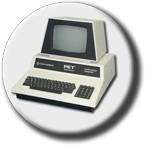Rangers and the Internet
by Matthew Chatfield
F
or better or worse, the Internet has become fashionable to talk
about at the moment. Like most new things, some people think it is the solution
to everything, and others are convinced that it is corrupting children everywhere.
I remember, many years ago, being quizzed by Mum about a new craze called "Dungeons
and Dragons". Warnings had been broadcast on the radio, and my parents
were worried about their children being brainwashed into this dreadful cult.
Not so dreadful, as it turned out.
The Internet cannot be bracketed with space hoppers and skateboards.
It is not a single thing, or even a single organisation. It is a medium. As
with telephones, newspapers and televisions, computers can be used for passing
around information. We call this process, collectively, "The Internet".
The difference is that everybody can distribute their own messages if they so
wish. No single body can control the system, any more than one could control
how people send ordinary letters to each other. Those who worry about dreadful
things being published on the Internet are right to worry - but the main objects
of the concern should be those who produce the message, not just the messenger.
Similarly, nothing good will come out of the Internet in itself - benefits can
only come from the way people decide to use it - or not to use it.
As countryside managers, we are always concerned with using
the media to some extent. Sometimes it can be a very important part of the work.
We can include leaflets, posters and even guided walks in the definition of
a medium for putting across our message, and in that context almost all countryside
management organisations can be seen to have a strong media involvement. For
this reason, the new medium of the Internet is not something that any countryside
manager can afford to ignore.
The Internet is a range of different services and facilities.
This is your guide to the best and worst bits of the Internet, and star ratings
from 1-5 in the following categories:
• Ease of use: how easy is the system for the
average user?
• Usefulness: how likely is the system to provide useful results?
• Publicity Value: how much potential does the system have for generating
publicity?
The best known and oldest Internet facility. Simply a way
of transferring messages from one person to another. It works instantly, even
across the globe. It is possible to email any computer file, such as a program,
spreadsheet, picture, sound or moving image file. Now almost universal in academic
institutions, and increasingly used by local authorities and government. Large
numbers of people can be emailed all at once. Can be a very cost-effective way
of communicating overseas. An email address looks like this: enquiries@countryside.net
Ease of use: *****
Usefulness: *****
Publicity Value: *
The most dramatic and fastest developing Internet service.
Pictures, text, animations, sounds, and almost anything can be on your computer
when you access pages published by someone else. Most big companies have such
pages, as well as countless individuals and other organisations. These are often
known as ‘Home Pages’. It is a huge network of information, which
can be hard to navigate. Information on almost anything can be found, and there
are plenty of people looking. The Web is also where most people publish their
own information. A World Wide Web address (also known as a URL) looks like this:
https://naturenet.net
Ease of use: ****
Usefulness: ***
Publicity Value:*****+
Imagine a public library with lots of notice boards. Each
board has a title, giving a topic such as "Biology, miscellaneous"
or "UK, Environment" or "Cars, Ford Escort". People can
browse around all the boards, and read notes others have stuck up. If they are
interested, they can stick up a note of their own, maybe asking a question,
announcing something, or commenting on a note someone put up previously. Every
now and again the librarian comes around and throws out all the oldest notes,
to make room for the new ones. This is an analogy of the Newsgroup system. It
is a very good way to find out specialised information, or to correspond with
like minded people on just about any topic you like. A newsgroup title looks
like this: sci.biol.ecology
Ease of use: **
Usefulness: ****
Publicity Value: ***
My hints:
1. Get some advice, not from a consultant or a high-street
shop, but from someone who has already done it, preferably near you.
2. Read a magazine, there are several with very helpful advice in them.
3. Shop around. Hardware and service providers all vary a lot in price and
quality. The best promoted are often the worst service!
4. Remember your phone bill will go up. Budget for at least an extra £20
per month.
Some people will try to rip you off, so beware. Here are
some things you should not pay for!
1. Good advice and telephone support.
2. Hourly access - a flat rate should cover everything.
3. Software to use the Internet (most of it is free).
4. Advertising on the Internet - do your own, it is much cheaper.
5. Space on the Web up to about 500k (about half a floppy disk full).
Matthew Chatfield
This article first appeared in The
Ranger magazine, Winter 1997. It has been
slightly amended.

